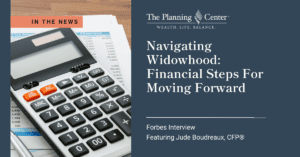[This post is part of the Financial Rules of Thumb series. Check out the rest here!]
Rules of Thumb for refinancing your mortgage are hard to come by. The one I’ve heard most often is “Refinance your home when interest rates have dropped by more than 1%” Interest rates are still hanging around historic lows. So should you refinance?
The Upperline: A 1% drop is a good indication that it’s worth considering, but you’ve got to run the numbers, and make some assumptions.
To run the numbers, use any of the great calculators available on the internet (I like Bankrate.com’s Mortgage Refinancing Calculator) and input your information. Don’t assume you’ll get the lowest rate possible, run the numbers assuming a higher rate. If you get a lower rate, wonderful, but don’t count on it.
6 things to consider when looking at refinancing:
- Don’t fall for false comparisons. If you’ve been in your home for 5 years, don’t compare your current mortgage to a new 30 year mortgage. You’d be swapping the remaining 25 years of payments into a new 30 year payment plan. Of course those payments would look smaller. Don’t extend the time if you can at all help it.
- Can you qualify? Your situation may have changed since you got your original mortgage. Some questions to consider: Is your credit better or worse than you bought your home? Has your income situation changed? What about other debts? All of these factors (and more) will determine if you can even qualify to refinance.
- Do you have more than 20% equity in your home? Considering price drops around the country, how much equity do you really have? It’s going to be hard to refinance at the best rates if you’re below that 20% number. Do a bit of research before you pay for an appraisal on the refinance. Tools like Zillow.com and Trulia.com can give you an estimate of the value of your home, or a trusted real estate agent can give you a ballpark figure.
- How much longer will you be in this home? If it’s less than 5 years, you’d have to save a lot on the refinance to make the closing costs worthwhile. (Zillow has a great Closing Cost Calculator to give you an estimate, including amounts from local service providers.)
- Don’t extend your mortgage to save money. Although banks advertise rates on 30 and 15 year mortgages, chances are they’ll issue you an odd-year mortgage (for example, a 27 year mortgage, if you’ve been in your current mortgage for 3 years). It’s worth asking. Do whatever you can to not extend the number of years you’ll be paying. If your bank won’t do this and you’d still like to refinance, take the lower payment and:
- Continue paying your current mortgage payment after refinancing. If you can reduce your mortgage payment by refinancing and you’ve met the above criteria, add some extra debt-liquidation juice on top by making the mortgage payment you’re used to. You’ll have some extra money going directly towards your principal every month that will help you eliminate that mortgage even sooner.
Are you considering refinancing your mortgage? Have any other tips to share?





